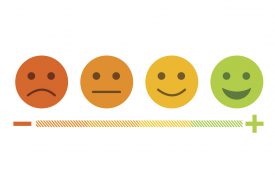-

Recruiters Change Interview Questions Based on Applicant’s Ethnicity, Researchers Find
Professional recruiters drew up more questions about culture and group compatibility when they prepared to interview applicants with Arabic-sounding names
-
People can’t be educated into vaccinations, but behavioral nudges help, study finds
Vaccines were one of the great inventions of modern history. They helped stop America's polio epidemic in the 1950s. And yet many people are reluctant to get their shots or vaccinate their children. A study published Wednesday concludes that using education campaigns, and simply trying to persuade people to get the shots, is far less effective than using indirect behavioral nudges. The reason most people don't get vaccinations for themselves or their children, the study found, isn't because they need convincing but because they perceive inconveniences or obstacles.
-
Are We Already Living in Virtual Reality?
Thomas Metzinger had his first out-of-body experience when he was nineteen. He was on a ten-week meditation retreat in the Westerwald, a mountainous area near his home, in Frankfurt. After a long day of yoga and meditation, he had a slice of cake and fell asleep. Then he awoke, feeling an itch on his back. He tried to scratch it, but couldn’t—his arm seemed paralyzed. He tried to force the arm to move, and, somehow, this shifted him up and out of his body, so that he seemed to be floating above himself. Gazing out into the room, he was both amazed and afraid. He heard someone else breathing and, in a panic, looked around for an intruder.
-
“You’re no genius”: Her father’s shutdowns made Angela Duckworth a world expert on grit
Angela Duckworth is the world’s leading expert on “grit,” the much-hyped ingredient in personal success. As Duckworth defines it, grit is passion and sustained persistence applied toward long-term achievement, with no particular concern for rewards or recognition along the way. It combines resilience, ambition, and self-control in the pursuit of goals that take months, years, or even decades. The University of Pennsylvania psychologist’s studies of grit began when she was teaching math to seventh graders. She realized IQ wasn’t the only factor separating successful students from those who struggled, and that grit—holding steadfast to a goal through time—was highly predictive of success.
-
When Guilt Is Good
A few years ago, researchers in Germany set out to plumb the moral consciences of small children. They invited a series of 2- and 3-year-olds to play with a marble track in a lab. Close to the track—inauspiciously close—was a block tower that one of the adult experimenters claimed to have painstakingly constructed. Just before turning her back, she asked them not to damage it. Needless to say, the game was rigged. After a few runs, a marble would knock over part of the tower, at which point the experimenter responded with what the resulting journal article described as a “mildly sad” tone. “Oh no,” she would say, then ask what had happened.
-

The Emotions We Feel May Shape What We See
Findings from two experiments suggest that our emotional state in a given moment may influence how we perceive visual stimuli.

